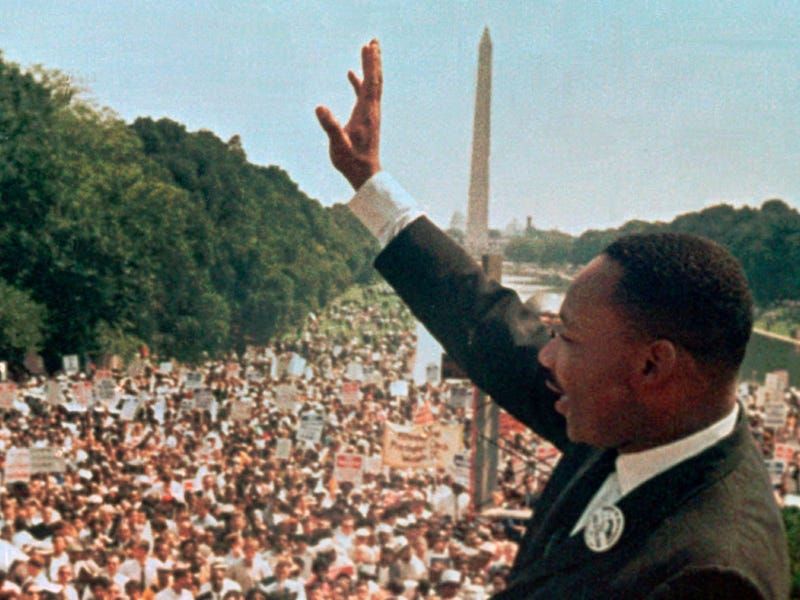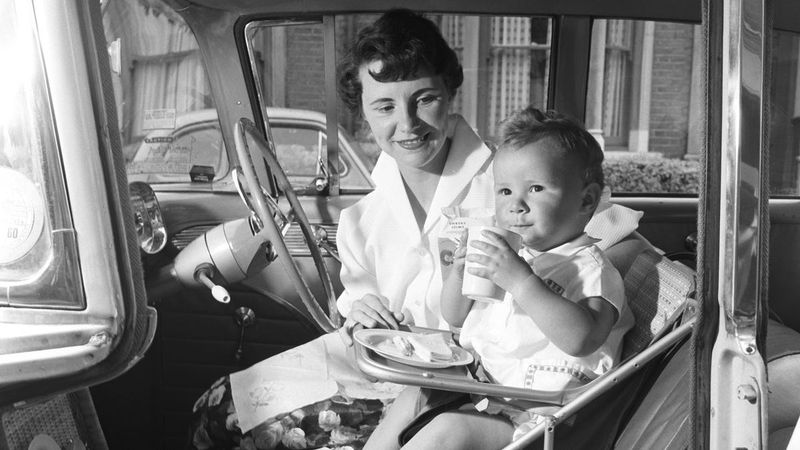Baby Boomers, those born between 1946 and 1964, experienced unique societal and economic conditions that shaped their lives in fortunate ways. From affordable education to witnessing historic moments, their journey was marked by advantages that many subsequent generations envy.
1. Affordable College Tuition
In the era of Baby Boomers, college tuition was far more affordable. Many could attend university without the looming burden of student debt. This financial accessibility allowed them to focus on their studies and personal growth without the stress of loans.
Education opened doors, providing them with opportunities to explore diverse career paths. The cost efficiency of higher education back then is something that evokes envy in today’s youth. Imagine a world where passion and curiosity guide your educational journey, not financial constraints.
With degrees in hand, Boomers stepped into the world with confidence, ready to contribute and innovate without the chains of financial stress.
2. Buying Homes Before Prices Skyrocketed
The real estate market in the years of the Baby Boomers was a buyer’s dream. Homes were affordable, allowing young families to settle without breaking the bank. They invested in properties that would later see significant appreciation in value.
Homeownership brought stability and community, with neighborhoods forming tight-knit bonds. Gardens flourished, and streets echoed with children’s laughter, a sight that seems distant now. The ease of purchasing a home contributed to financial security and generational wealth.
As property values soared, many Boomers found themselves sitting on assets that became their financial safety nets, an advantage newer generations find elusive.
3. Entering the Job Market During Economic Booms
Baby Boomers entered the workforce during a time of economic prosperity. The post-war economy was thriving, offering abundant job opportunities across various sectors. This timing allowed them to build successful careers with relative ease.
Companies were expanding, eager to hire fresh talent. Boomers found themselves in a landscape full of possibilities, where hard work and dedication paid off. This environment fostered professional growth and stability, which many find hard to achieve today.
With stable jobs came the ability to plan for the future, invest in personal passions, and enjoy a comfortable lifestyle, setting a foundation for long-term success and happiness.
4. Experiencing Life Before Constant Digital Distractions
The Baby Boomers grew up in a world unburdened by digital distractions. Their lives were enriched by face-to-face interactions and genuine connections, not screens. This unplugged existence allowed deeper relationships and personal discoveries.
Without smartphones or social media, they engaged in hobbies and outdoor activities, fostering creativity and imagination. This era inspired meaningful conversations and community gatherings, which have become rare today.
By experiencing life at a slower pace, Boomers cultivated a sense of mindfulness and presence, attributes that are often overshadowed by today’s digital demands. Their ability to enjoy the moment is something many yearn to replicate.
5. Retirement Plans That Actually Worked
Retirement for Baby Boomers was secured by robust pension plans and social security benefits. These financial safety nets allowed them to enjoy their golden years with peace of mind, without the fear of outliving their savings.
During their working years, companies offered pensions that guaranteed a steady income post-retirement. Such plans are a rarity for today’s workforce, who face the challenges of managing 401(k)s and unpredictable markets.
With financial stability, Boomers could pursue leisure activities and travel, making the most of their retirement years. This security, once taken for granted, highlights a significant advantage they held over future generations.
6. Fewer Societal Pressures to “Hustle” Nonstop
The Baby Boomers lived in a time with less pressure to constantly hustle. Work-life balance was more achievable, with evenings and weekends reserved for relaxation and family.
Society valued personal time, allowing Boomers to pursue hobbies and nurture relationships. There was no overwhelming need to always be productive, a stark contrast to today’s hustle culture that promotes constant work.
This lifestyle fostered personal well-being, with ample time for reflection and leisure. The freedom to enjoy life’s simple pleasures without guilt is a luxury they enjoyed, setting a precedent for the importance of work-life harmony.
7. Simpler Lifestyles with Less Consumerism
Life for Baby Boomers was marked by simplicity rather than consumerism. Their lifestyles were centered around essentials, valuing quality over quantity, in stark contrast to today’s material-driven culture.
Possessions were cherished and maintained, not quickly replaced by the latest model. This mindset fostered contentment and sustainability, with less waste and more appreciation for what they owned.
The emphasis was on experiences rather than possessions, with family and community playing central roles. This grounding in simplicity has become a nostalgic yearning in an age characterized by excess and rapid consumption.
8. More Job Stability and Long-term Careers
Baby Boomers enjoyed a job market that promised stability and growth. Long-term careers were common, with many spending decades at a single company, moving up the ladder with dedication and loyalty.
This stability provided security, allowing them to plan their futures without the fear of sudden unemployment. The predictability of career paths contrasted sharply with today’s gig economy and frequent job hopping.
With clear career trajectories, Boomers could focus on skill-building and personal development. Their commitment to employers often translated into rewarding careers, a testament to the benefits of stable employment environments.
9. Living Through Music’s Golden Eras
The Baby Boomers were witnesses to some of music’s most transformative eras. From the rock ‘n’ roll explosion to the soulful tunes of the ’70s, they experienced a golden age of music that defined generations.
Concerts and festivals became cultural milestones, with iconic bands shaping the soundtrack of their lives. The music of their time inspired movements and social change, resonating deeply with their hopes and dreams.
The innovation and creativity in music provided an emotional outlet, fostering a sense of unity and identity among Boomers. This musical legacy continues to influence artists and fans alike.
10. Growing Up with Strong Neighborhood Communities
For Baby Boomers, neighborhood communities were the heart of social life. Streets were filled with children playing, and everyone knew their neighbors, creating a sense of belonging and security.
Communities organized events and gatherings, strengthening relationships and support networks. This communal lifestyle fostered trust and cooperation, a contrast to today’s often isolated and transient living.
The bonds formed in these communities provided a foundation of support and shared values, enriching their upbringing. The nostalgia for such close-knit neighborhoods remains strong, as many seek to reconnect with this sense of community.
11. Access to Affordable Healthcare in Their Youth
Healthcare during the Baby Boomers’ formative years was accessible and affordable. This ease of access allowed them to maintain good health from a young age, without the financial burdens seen today.
Medical advancements were embraced, and healthcare systems were structured to cater to growing families, ensuring comprehensive coverage. This foundation of care contributed to their overall well-being and longevity.
The security of affordable healthcare provided peace of mind, a stark contrast to the complexities and costs faced by newer generations. This advantage allowed Boomers to prioritize health without the stress of financial strain.
12. Feeling Secure About Their Financial Futures
Financial security was a hallmark of the Baby Boomer experience. With stable jobs, affordable living, and reliable pension plans, they navigated their financial futures with confidence.
Their economic landscape was marked by opportunities for saving and investment, fostering a sense of control over their financial destinies. This foundation allowed them to plan for future generations, instilling financial wisdom in their families.
The assurance of financial stability supported personal and family goals, providing a legacy of security that many strive for today. Economic predictability was a significant advantage they held, shaping their optimistic outlook.
13. Witnessing Historic Moments That Shaped the World
Baby Boomers lived through transformative historic moments that defined the 20th century. From the moon landing to civil rights movements, they witnessed events that reshaped society and inspired new worldviews.
These moments fueled a collective sense of awe and possibility, encouraging active participation in societal change. Boomers were not just spectators; they were often part of the movements that propelled these changes.
The experience of living through such pivotal times enriched their perspectives, instilling a sense of purpose and collective responsibility. This historical engagement is a source of pride and inspiration for them.
14. A Slower Pace of Life Before Social Media
Life for the Baby Boomers was delightfully slower, free from the instant gratification of social media. This pace allowed for more thoughtful interactions and a deeper appreciation of life’s moments.
Without the constant barrage of notifications, they experienced less stress and more meaningful connections. The absence of digital distractions meant more time for introspection, creativity, and genuine social encounters.
This slower lifestyle nurtured mental well-being and enriched daily experiences. The simplicity and presence of a life lived offline are qualities many now seek to reclaim in a hyper-connected world.
15. Childhoods Filled with Outdoor Adventures and Freedom
For Baby Boomers, childhood was synonymous with outdoor adventures. Their days were filled with exploration, creativity, and the freedom to roam, fostering independence and resilience.
Parents encouraged outdoor play, trusting communities to look out for one another. This freedom allowed Boomers to learn through experience and imagination, unhindered by today’s safety concerns.
The open fields and neighborhood games of their youth are fondly remembered as a time of innocence and discovery. These outdoor adventures shaped their characters and left an indelible mark on their identity.
















